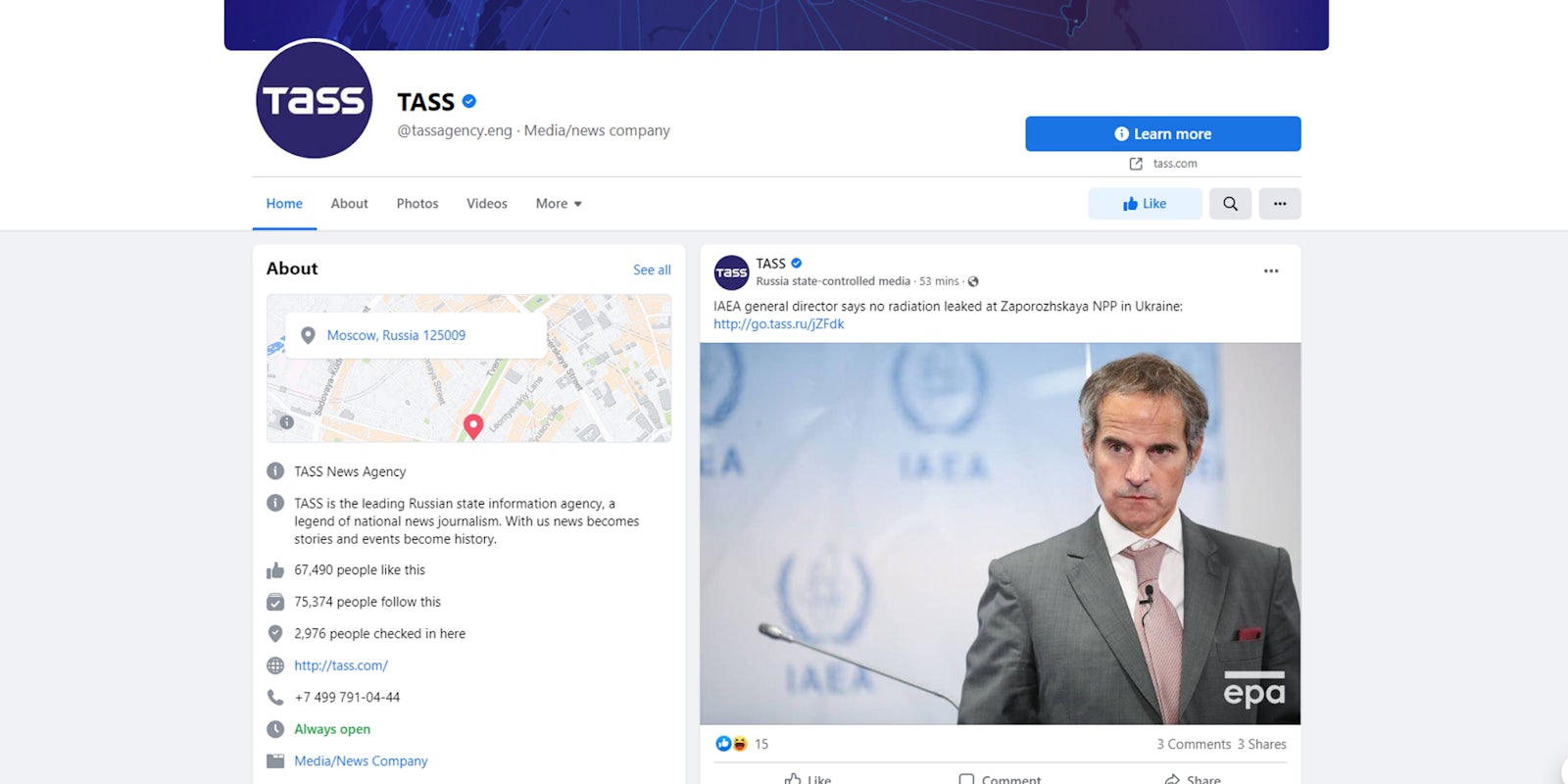Earlier this week, Facebook announced that it was suspending Russian-controlled news agencies due to the war in Ukraine. The move is intended to stop Russia from using its platform to circulate propaganda about the war. Facebook’s ban doesn’t appear to apply to the largest Russian-controlled news agency, however.
Russia’s invasion of Ukraine has inspired unprecedented action by tech companies to limit Russia’s reach online. Facebook parent company Meta, along with YouTube, Spotify, TikTok, and others have suspended and banned accounts controlled by the Russian government.
RT (previously known as Russia Today) and Sputnik News, both of which the Russian government controls, were among those banned in the European Union.
RT and Sputnik News remain accessible on Facebook in the United States and elsewhere.
Nick Clegg, Meta’s president of global affairs, wrote on Twitter that the sites were banned in response to requests from heads of state and the European Union itself.
“Given the exceptional nature of the current situation, we will be restricting access to RT and Sputnik across the EU at this time,” Clegg added.
Facebook’s announcement didn’t mention Russian News Agency TASS, however. Though it’s lesser-known abroad than RT and Sputnik, TASS is the largest media outlet in Russia. It’s not known whether the EU or other nations have asked Facebook to restrict access to TASS.
Facebook didn’t immediately respond to a request for comment Friday morning.
According to the locations given on their accounts, many of those commenting on TASS’ Facebook page on Friday are in the European Union. The Daily Dot reviewed dozens of comments on RT’s Facebook page Friday morning and found none that list their location as within the EU.
TASS has 75,000 followers on Facebook. Its Facebook page includes the label “Russian state-controlled media.”
Clicking the link to TASS’ website on Facebook prompts the following warning: “This link is from a publisher Facebook believes may be partially or wholly under the editorial control of the Russian government.”

TASS’ posts and content include significant amounts of Russian propaganda about its war against Ukraine.
Articles on the site refer to Ukrainians fighting to maintain their independence as “rampaging nationalist battalions,” Russia’s invasion as an effort to liberate Ukrainians, multiple claims that Nazis run Ukraine, and that local governments are “unable to take care of the civilian population or address social and utilities issues.”
Russia has sought to justify its invasion of Ukraine as an effort to eradicate Nazism in the nation led by President Volodymyr Zelenskyy, who is Jewish. “Denazification and demilitarization are the main objective,” an article in TASS claims.
Russia has also described its unprovoked assault as an effort to protect people in Ukraine who identify as Russian, an argument Ukrainians have resoundingly rejected.
People commenting on TASS’ Facebook posts on Friday hail from countries all over Europe, according to the locations listed on their Facebook accounts.
It appears other tech giants have taken proactive actions against TASS. The Daily Dot was unable to access TASS’ YouTube channel when using a VPN location set to Europe.
Many of the purported Europeans commenting on TASS’ page are harshly critical of Russia and President Vladimir Putin.
TASS posts stories on Facebook that many would describe as propaganda, including one posted Thursday referring to the Ukrainian government as a “nationalist regime” and forces being sent to help fight the Russian invaders as “mercenaries” that further vows they won’t receive human rights protections guaranteed under the Geneva Convention—essentially a threat to torture them.

As of Friday morning, the site hadn’t mentioned widely circulated reports that Russian aligned forces have attempted to assassinate President Zelenskyy three times in recent days. Nor does it seem to reference other news from the war that casts a negative light on Russia.
Facebook and other platforms have long struggled with Russian disinformation on their sites. The Kremlin notoriously uses social media to interfere in international affairs.
The bans of RT and Sputnik are seen as a significant escalation in the effort to stop Russia from polluting the information ecosystem about its war in Ukraine, as both outlets are openly controlled by the country.
It’s not clear why Russia’s largest news agency, TASS, has been exempt from this effort.


